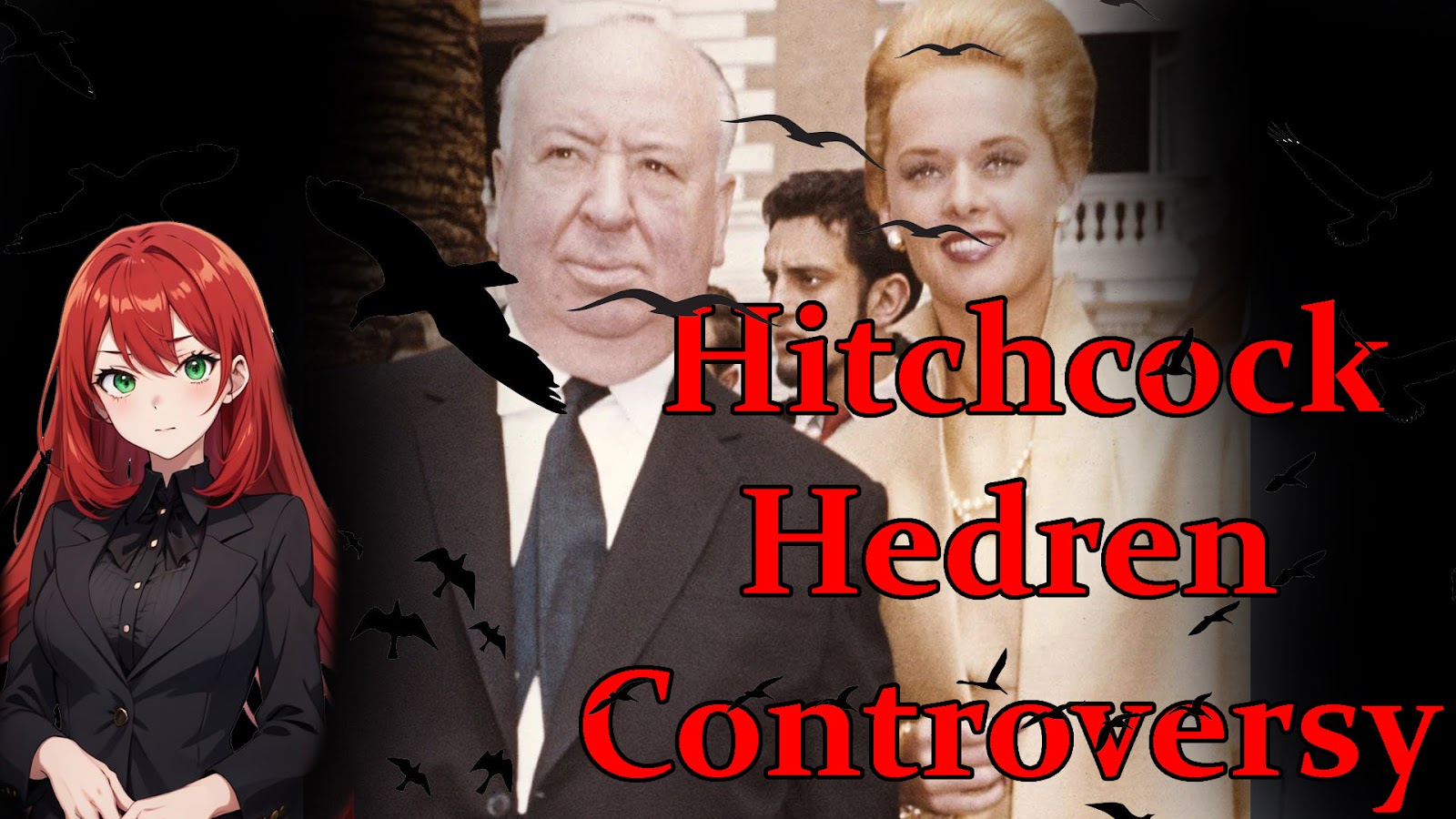### The Dark Shadow Behind the Silver Screen: Unraveling the Hitchcock-Hedren Controversy
#### 1. **The Muse Syndrome**
Hitchcock's obsession with his leading ladies, often referred to as his "muse syndrome," was notorious in Hollywood. Tippi Hedren, the star of "The Birds" and "Marnie," became his latest fixation. Hitchcock meticulously controlled her every move, from her wardrobe to her off-screen persona. This alleged obsession was more intense and invasive than with his previous muses, such as Grace Kelly and Ingrid Bergman.
#### 2. **Unwanted Advances**
Hedren has recounted in her memoir, *Tippi: A Memoir*, that Hitchcock's behavior went beyond professional boundaries. She claimed that he made unwanted sexual advances and that his possessiveness created an oppressive working environment. These allegations paint a picture of a man whose genius was overshadowed by his darker impulses.
#### 3. **The Infamous Contract**
Hitchcock had Hedren sign an exclusive contract, binding her to work solely for him for a period of time. This contract essentially trapped her, making it nearly impossible for her to escape his clutches or seek roles with other directors. This level of control was unprecedented and highlighted Hitchcock's need to dominate his leading lady.
#### 4. **The "Marnie" Fallout**
The filming of "Marnie" marked the breaking point. Hedren's refusal to comply with Hitchcock's advances allegedly led to a series of punitive actions. Hitchcock's behavior during this period was described as vindictive, and his treatment of Hedren on set was reportedly harsh and unrelenting. This conflict was not only personal but also deeply professional, impacting the film's production.
#### 5. **The Professional Blacklisting**
After the fallout, Hedren found herself effectively blacklisted in Hollywood. Despite her talent and beauty, she struggled to find roles. Many believe that Hitchcock used his influence to ensure she wouldn't work again, a tactic that displayed the extent of his control and the vindictive lengths he would go to.
#### 6. **The Alleged Exit from the United States**
As the controversy swirled and the stories of Hitchcock's behavior became more public, the director faced mounting pressure. Some sources suggest that this contributed to his decision to work more extensively in Europe towards the end of his career. While he never fully abandoned Hollywood, his presence there diminished, and his later films did not achieve the same acclaim as his earlier works.
#### 7. **Hitchcock’s Career Decline**
Post-1964, after "Marnie," Hitchcock never regained the cinematic heights he once commanded. Films like "Torn Curtain" and "Topaz" failed to capture the critical and commercial success of his previous masterpieces. Many speculate that the public scandal and his treatment of Hedren tarnished his reputation, impacting his career trajectory.
#### 8. **The Hidden Struggles of Hedren**
While Hitchcock’s later years were marked by a decline, Hedren's life was fraught with challenges. She turned to philanthropy and animal rights activism, founding the Shambala Preserve. Her resilience in the face of such adversity stands as a testament to her strength, even as she remained vocal about her experiences with Hitchcock.
#### 9. **Public Perception and Legacy**
The Hitchcock-Hedren controversy is a stark reminder of the darker aspects of Hollywood’s golden age. While Hitchcock remains a celebrated figure in film history, this controversy has undeniably tainted his legacy. Discussions about his treatment of women and abuse of power continue to affect how we view his work today.
#### 10. **A Lesson in Power Dynamics**
This controversy serves as a powerful example of the dangerous dynamics that can exist in Hollywood. Hedren’s revelations have encouraged a more critical examination of power and control in the film industry. It has also paved the way for other actors to speak out against mistreatment and exploitation.
In conclusion, the Hitchcock-Hedren controversy is a multifaceted story of genius marred by personal demons. It sheds light on the complex interplay of power, control, and artistry. While Hitchcock's films will forever be studied and admired, this dark chapter serves as a poignant reminder of the human cost behind the creation of art. Tippi Hedren’s courage in sharing her story has ensured that this black mark on Hitchcock's career is not forgotten, prompting ongoing dialogue about ethics and accountability in the world of cinema.





Comments